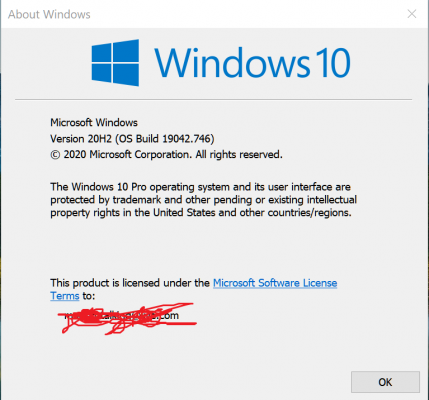I don't think there's any flaw with windows 10.
I am using Windows 10 since first release and always using latest stable release version.
Using WD SN700 500GB nvme m.2 drive since Nov 2018 as my primary drive with windows partition on it.
so after about 26 months it's showing about 92% health or 25000 GB read / write which is absolutely fine as per my usage.
I don't 've any games installed (not a gamer) it 's only windows OS and some other softwares but I write this partition about 25-35GB per day. sometimes downloading or copying data over this partition.
So average usage is about 30GB approx per day = 1000GB/month (Approx.) = 25000GB (Approx.) for 26 months which is absolutely great figure as claimed by manufacturer.
WD SN 700 500GB [300TBW (terabytes written) or 5yrs warranty]
so 25TB or 26TB usage is about 8-9% of 300TB which is absolutely true in my scenario.
hence remaining life for my SSD is 92%, see screenshot attached for both HWinfo64 and WD SSD dashboard.
View attachment 99449View attachment 99450View attachment 99451




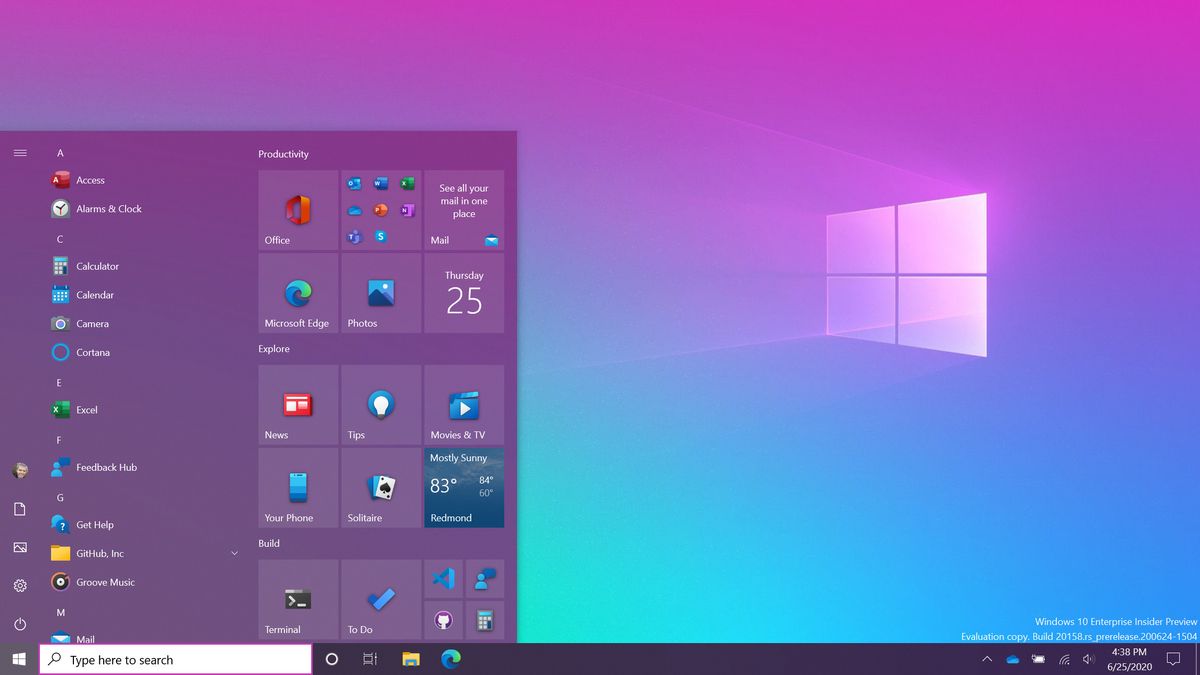

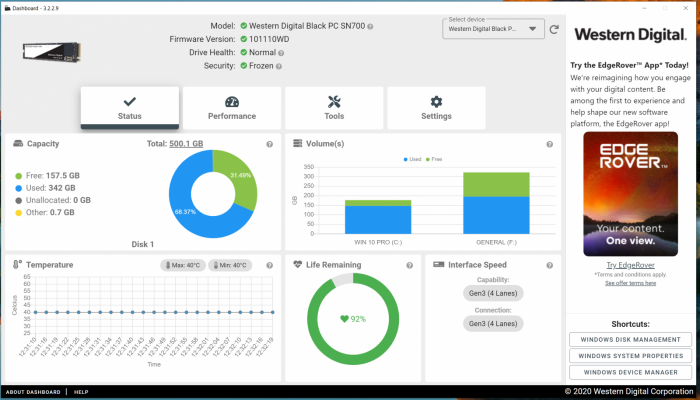
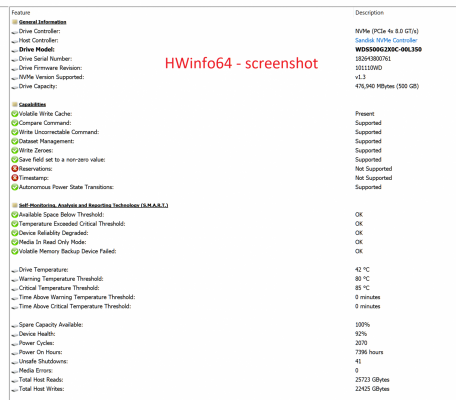
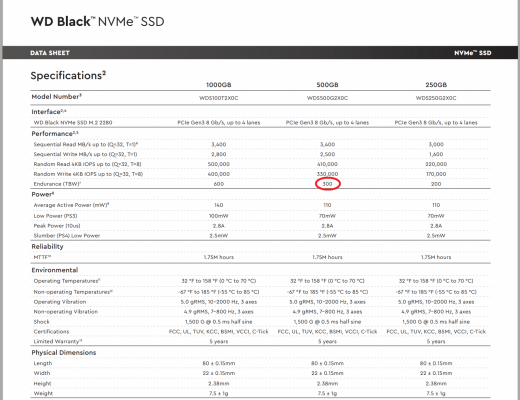
 .
.